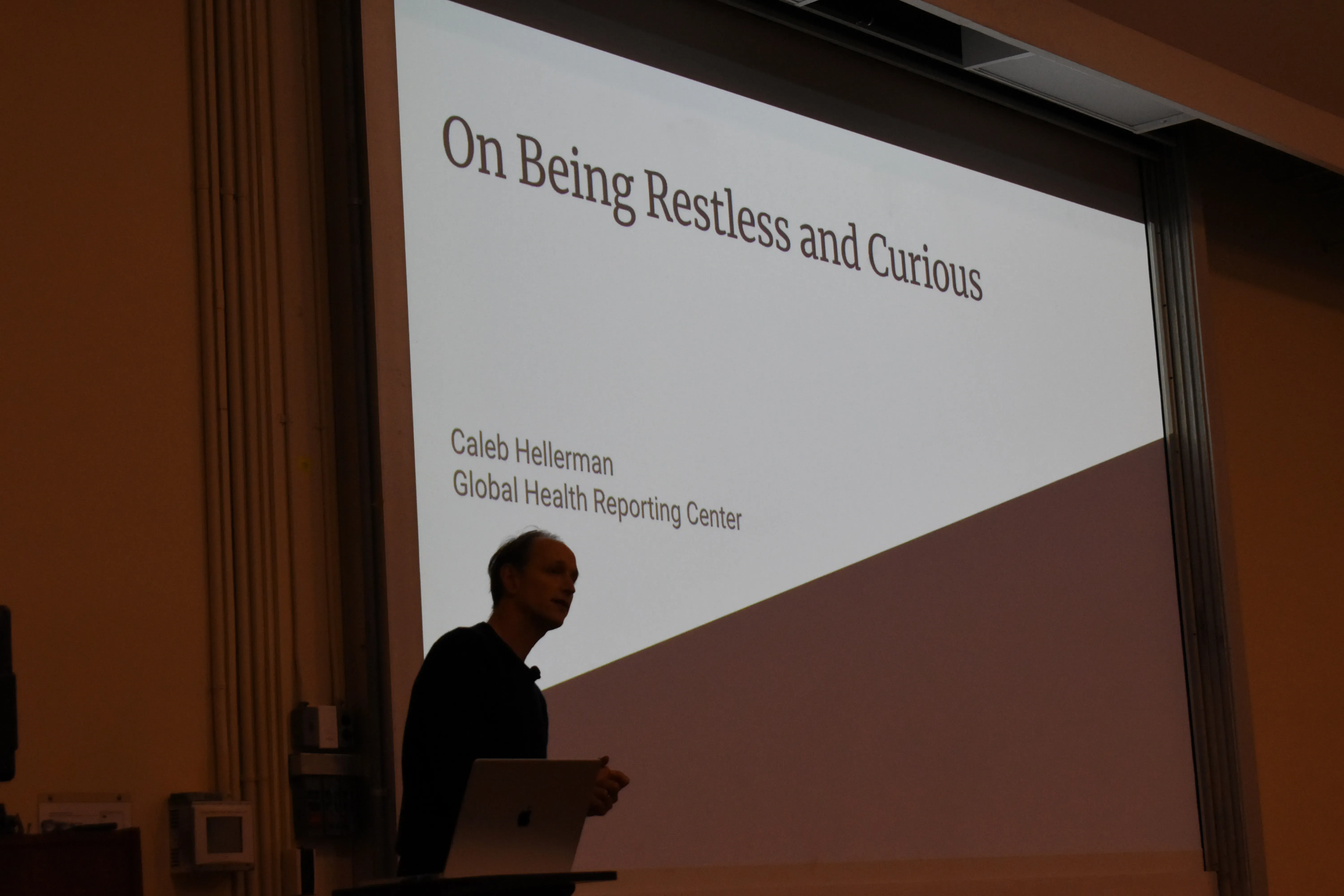
On March 6, 2025, students at Boston University’s College of Communication learned from a seasoned professional. Pulitzer Center grantee Caleb Hellerman—a journalist, producer, and filmmaker—took the stage to deliver a guest lecture titled “On Being Restless and Curious.”
Over 100 students from the course The World of Communication: The Human Storyteller attended the lecture to learn more about storytelling. David Abel—a Pulitzer Center grantee, Boston University journalism professor, and a Boston Globe reporter—introduced Hellerman to the students.
Hellerman is the executive producer at the Global Health Reporting Center, with about 20 years of experience covering science and medicine for several media outlets, including PBS NewsHour, ABC News, and the CNN Medical News Unit.
He started the lecture by describing his experiences working with different storytelling formats. “The medium we are working with shapes the kind of stories we are able to do,” he said, encouraging students to explore various forms of storytelling.
Hellerman also shared his career journey, which started with internships and led to rigorous jobs in newsrooms. “I loved the experience of being in a newsroom,” he said.
Hellerman advised the students to “go out, report in the real world and talk to people.” “... Tell the kind of stories you want to read or watch,” he said.
He wanted students to learn how to recognize when there’s a story. To illustrate that point, he showed clips from Cracking Ebola’s Code, a series he worked on for PBS NewsHour. He walked the students through the reporting process for the series.
He also showed students clips from Rural RX, his Pulitzer Center-supported PBS NewsHour series about the significant health challenges faced by residents in rural America.
Hellerman also discussed interviewing sources, saying it is a core piece of storytelling. A crucial decision, he explained, that journalists and/or storytellers must make while reporting is: “Whose voice is heard?”
He asked the students whether they have ever interviewed anyone, and what those experiences were like. “The interview takes a turn of its own; it’s interesting,” said a student in the audience in response to Hellerman’s question.
Hellerman reminded the students that the art of interviewing is also about being a good listener, a skill that needs to be cultivated. “We want to be listening to what the other person is saying.”
During the Q&A session, a student asked Hellerman about his favorite medium of storytelling. He said he does not have a favorite medium but confessed that he enjoys long-form storytelling.
When asked about the most challenging part of journalism, Hellerman said it was getting people to talk. He explained that while some people want to talk to journalists, others are more guarded. It is about figuring out how to navigate those barriers.
Hellerman’s talk was a reminder of the fact that storytelling is about being curious, persistent, and passionate about amplifying voices that often go unheard.







